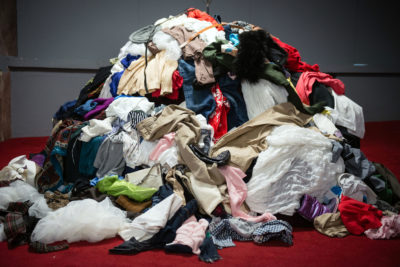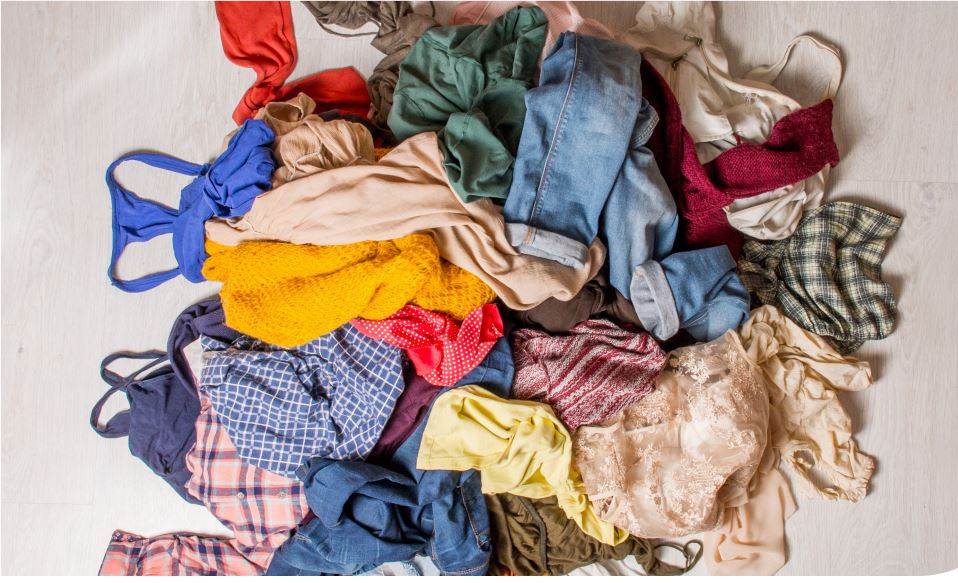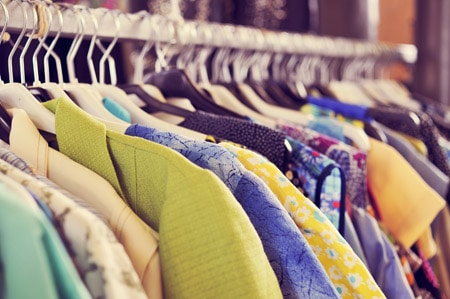The voluntary targets come under a body of work known as the Sustainable Clothing Action Plan (SCAP) 2020 Commitment, which was launched in June 2013 (see letsrecycle.com story) and is coordinated by the Waste & Resources Action Programme (WRAP). And a consumer campaign, Love Your Clothes, has been launched (see details below).

Under the commitments, signatories have pledged to reduce carbon, water and waste to landfill by 15% alongside a 3.5% reduction in the amount of waste arising per tonne of clothing by 2020. This will be measured against a 2012 baseline. The carbon, water and waste arisings are measured across the whole lifecycle of products.
The targets were developed after SCAP identified actions which deliver the biggest reductions in environmental impacts. They are: the use of lower impact fibres, extending the active life of clothes, and an increase in re-use and recycling. WRAP said this is reinforced by measurement to help focus effort, and informing consumers about changes they can make and the value this will bring.
Calculator
A SCAP Footprint Calculator has been developed to help a retailer or brand calculate the carbon, water and waste footprints of its whole garment portfolio. It also helps recyclers and collectors measure the carbon, water and waste impact for their processes and impact of changing waste destinations.
It is hoped the tool will help organisations prioritise their opportunities to take action, and an online Knowledge Hub will help signatories product development teams identify how they can reduce the footprint of individual garments they design and source.
WRAP said the new commitments could see an increase in alternative fibres such as lower impact forms of cotton as well as different business models. Previous research by WRAP has found that alternative business models for high street retailers, including the sale of pre-owned clothing and large-scale leasing, could deliver financial payback after two years (see letsrecycle.com story).
Consumers
WRAP said there is a clear role for consumers and has launched a consumer-facing campaign called Love Your Clothes which is designed to get the public to think about the way they buy, use and discard clothing. The campaign’s website features practical advice to consumers on choosing clothes designed to last longer or requiring less energy intensive laundry methods, buying pre-owned clothes, repairing and altering and donating unwanted items.
WRAP chief executive Liz Goodwin said: “SCAP has excellent industry buy-in with signatories representing 40% of UK clothing sales and many leading charities and recyclers on board. By agreeing to these stretching targets they are demonstrating their commitment to reducing the environmental footprint of the sector.
“But its not just SCAP signatories who have a role to play, UK consumers are also key. We spend billions on clothes every year that we are not getting the most out of and thats bad for our wallets and the environment. By working across the lifecycle and mobilising industry and consumer action, we can achieve amazing results.”|
Scottish environment secretary Richard Lochhead added: “I welcome this focus on how we treat our clothing to extend its lifespan and get the most out of it. A staggering volume of textiles ends up going in the bin every year much of this needlessly. By reducing this in line with the Sustainable Clothing Action Plan and being smarter about how we deal with clothing right across its life cycle, we can help the environment, save money and create social value.”











Subscribe for free